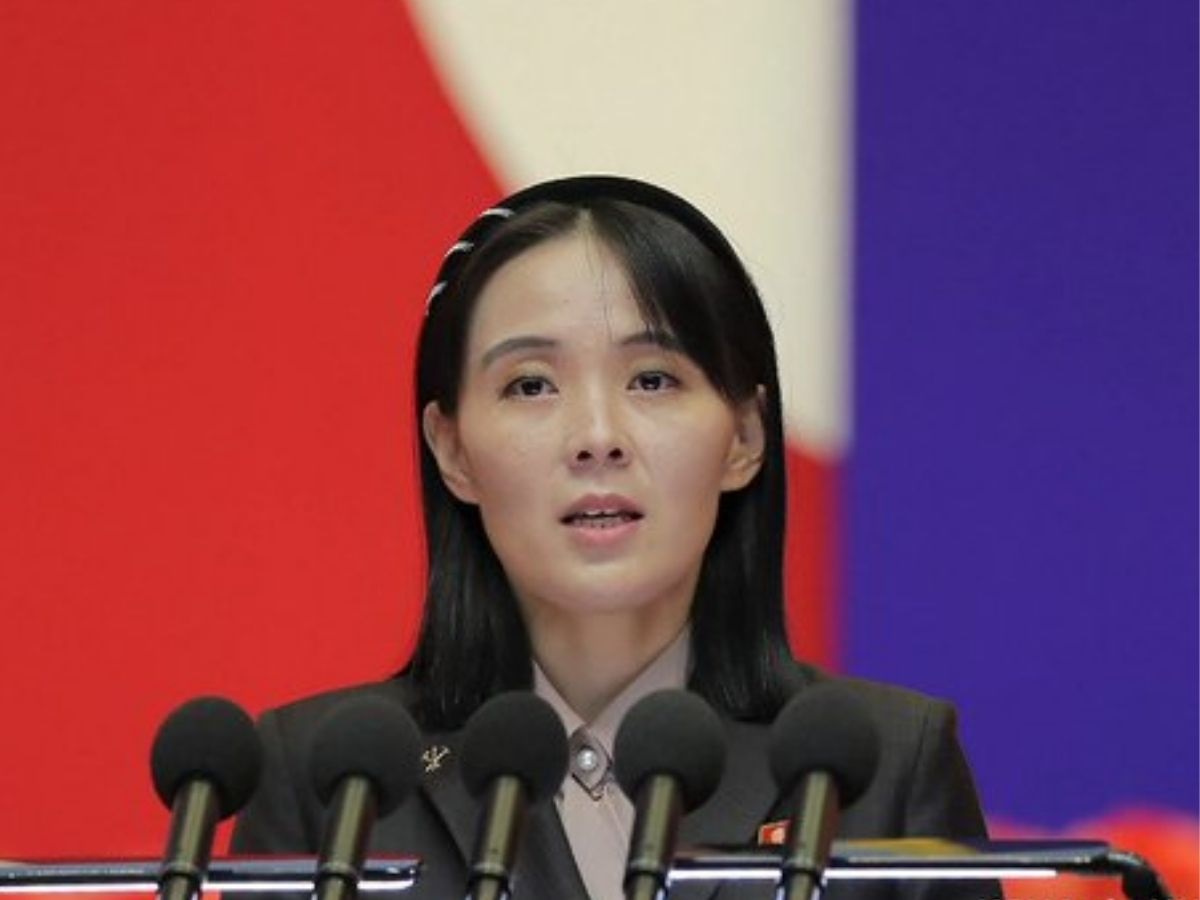North Korea has flatly rejected recent diplomatic overtures from South Korea’s newly elected President Lee Jae-myung, with Kim Yo Jong, the influential sister of North Korean leader Kim Jong Un, delivering a stern rebuke that effectively closes the door on any immediate inter-Korean dialogue.
In a statement released on Monday through state-run media outlet KCNA, Kim Yo Jong sharply criticized Seoul’s latest conciliatory gestures.
These include the suspension of loudspeaker propaganda broadcasts along the heavily militarized border.
Rather than seeing this as a meaningful step toward peace, Kim described it as a “reversible” action that merely backtracked on policies “they should not have pursued in the first place.”
Kim Yo Jong, a senior figure in the ruling Workers’ Party of Korea and a key voice in Pyongyang’s messaging and propaganda, warned that South Korea was making a serious error in judgment.
According to her, their error was by expecting diplomatic engagement from North Korea based on symbolic gestures.
“If South Korea expects to undo all it has done with a few sentimental words,” she said, “it is committing a grave miscalculation.”
The North’s scathing response comes as President Lee has made multiple public statements expressing a desire to ease inter-Korean tensions.
Lee assumed office following the removal of his conservative predecessor Yoon Suk-yeol.
Representing the left-leaning Democratic Party, Lee has advocated for renewed dialogue and de-escalation on the peninsula.
By this, he distanced his administration from the confrontational tone of the previous government.
However, Kim Yo Jong made it clear that Pyongyang remains deeply skeptical of Seoul’s intentions.
She specifically criticized the recent comments by South Korea’s Unification Minister Chung Dong-young.
Dong-young had expressed support for a possible invitation to Kim Jong Un to attend the upcoming Asia Pacific Economic Cooperation (APEC) summit in South Korea this October.
Kim ridiculed this proposal as unrealistic and emblematic of “daydreaming” by the Lee administration.
Kim also dismissed Lee’s efforts as fundamentally no different from those of the previous government.
She accused Seoul of continuing to rely blindly on its security alliance with the United States while adopting a confrontational stance toward the North.
“There is no difference in the nature of confrontation, whether it comes from Yoon’s conservatives or Lee’s liberals,” she implied.
In her statement, Kim emphasized Pyongyang’s firm position: “No matter what policy Seoul adopts or what proposals it presents, we are not interested.
There is no reason to meet, and there is nothing to discuss with the Republic of Korea.”
Lee Jae-myung has voiced strong interest in reversing the hostile trajectory of inter-Korean relations.
Jae-myung entered office just weeks ago after a political shake-up resulting in Yoon’s ousting over a controversial martial law declaration,
His party has historically supported engagement and humanitarian cooperation with the North.
This is supposedly a stance that contrasts with the hardline approaches of conservative governments.
Despite Lee’s efforts to establish goodwill, including the recent repatriation of six North Korean nationals rescued earlier this year after drifting across the maritime border, Pyongyang has shown little sign of reciprocating.
The return of the individuals, done quietly and without fanfare, was seen by Seoul as a goodwill gesture aimed at laying the groundwork for further diplomatic openings.
Yet it failed to elicit any positive response from the North.
The Korean Peninsula remains technically in a state of war, as the 1950–1953 Korean War ended in an armistice, not a peace treaty.
Decades of fluctuating relations have alternated between hopeful summits and military standoffs.
The latest exchange underscores the entrenched mistrust between the two sides, even as a new administration in Seoul attempts to turn a page.
For now, Kim Yo Jong’s statement appears to have drawn a clear line.
It signals that Pyongyang sees little value in pursuing dialogue under current circumstances, regardless of the change in leadership in the South.
As the region faces increasing geopolitical tension, particularly involving the U.S., China, and Japan, Seoul’s bid to stabilize inter-Korean relations may be significantly more difficult than the new president had hoped.



